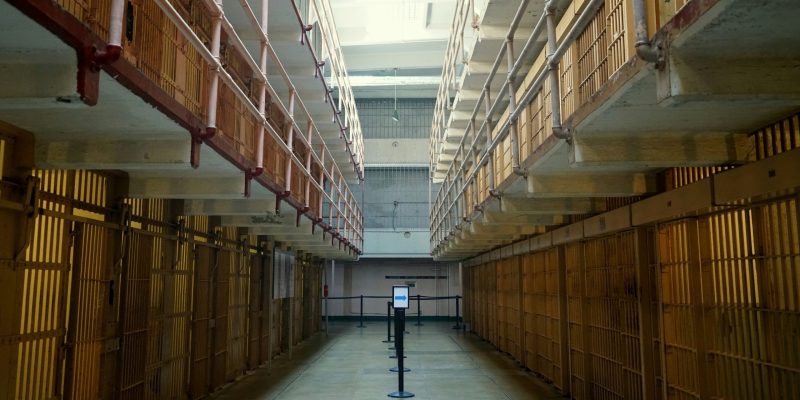Cambridge law student Jack Gower proposes a reform of voting rules for prisoners

With overcrowding at record highs and self-harm incidents rising year after year, the UK prison system is in crisis. Yet one long-running question is asked repeatedly: Should prisoners be allowed to vote? Supporters of the current regime of disenfranchisement argue it sends a necessary moral message: commit a crime, lose your say in society. But what if we are stuck in the wrong debate?
Instead of endlessly rehashing whether prisoners should vote or not, it is time to ask a deeper question: how can prisoners have a voice in the policies that govern their lives — without upending the UK’s constitutional traditions?
Here is a modest proposal: let prisoners elect their own representatives to an official Prisoner Representation and Advisory Council (PRAC). No full voting rights. No seats in parliament. Just a structured, democratic way to consult prisoners on the laws and policies that directly affect them.
This is not about being soft; it is about being legitimate. And it could be the first real step toward restoring trust in a penal system on the brink.
The problem with all-or-nothing thinking
Under Section 3 of the Representation of the People Act 1983, all UK prisoners serving a custodial sentence are barred from voting in local and national elections. In Hirst v United Kingdom (No 2) and Greens and M.T. v United Kingdom, the European Court of Human Rights ruled that this blanket ban violates principles of proportionality and inclusion.
Despite this, parliament has resisted reform. The compromise has been minimal — some prisoners on temporary release or home detention curfew are allowed to vote. But this limited concession is a political fig leaf, not a meaningful solution.
The debate is stuck in a binary: either prisoners vote, or they don’t. It ignores the messy constitutional complexity beneath. On the one hand, parliament retains sovereign authority over the franchise. On the other, the UK has committed itself to upholding democratic rights, including through the European Convention on Human Rights. The result is a constitutional impasse — and a missed opportunity.
A democratic role short of the vote
The idea of PRAC is simple. Establish an elected council comprising representatives chosen by the prison population. These representatives would not hold legislative power or public office. Rather, they would act as mediators between prisons and policymakers — consulting on legislation, advising the Ministry of Justice, and publishing reports on penal policy from the perspective of prisoners.
This would not challenge parliamentary sovereignty or public confidence. It would instead inject procedural fairness and legitimacy into a system that often marginalises the people it governs most intimately.
Why does this matter? Because prisoners live with the consequences of penal policy — from overcrowding to staff shortages to institutional neglect. And when things go wrong, they pay the price. The Howard League reported 76,365 incidents of self-harm in English and Welsh prisons in the year to June 2024 — a record high.
Punishment ≠ silence
One common objection is that voting is part of the punishment. But civic exclusion should not mean civic erasure.
As Sandra Fredman argues, citizenship is not just a legal status but a lived political identity. Denying prisoners all forms of participation fractures their civic membership and obstructs rehabilitation.
Jeremy Waldron similarly contends that disenfranchisement suppresses a vital communicative channel between citizen and state, weakening both democratic legitimacy and penal justification. PRAC offers a way to maintain punishment while preserving voice.
Prisoners remain citizens. They follow laws, pay taxes on prison wages, and are governed by the state. A limited consultative role is not a privilege — it is a recognition of their continued membership in the political community. It sends a message: even behind bars, the rule of law applies.
A principled, constitutional step
Some might call this utopian. But in truth, PRAC is constitutionally modest. It fits squarely within the UK’s tradition of incremental reform. It would not require an Act of Parliament. It could be introduced through ministerial discretion, with pilot schemes in select prisons.
Critics might argue that even limited representation for prisoners could invite disruption or erode public trust. But PRAC does not give prisoners political power — only a voice. It is not about privileging offenders but restoring policy legitimacy in a system that governs their lives daily.
It offers a principled alternative to total disenfranchisement without infringing on legislative supremacy or public trust. It embodies the core values of proportionality, dignity, and democratic accountability — without triggering constitutional disruption.
The bigger picture
The UK’s penal system is at a breaking point. Politicians often campaign on being “tough on crime” but rarely address what happens once the sentence begins. Overcrowding, underfunding, and rising rates of self-harm suggest a deeper crisis of legitimacy.
By creating a structured, democratic forum for prisoner input, PRAC could be the first step in a broader project: restoring the moral authority of the state within prison walls and reinforcing the legitimacy of punishment through participation rather than exclusion.
Prisoners as political actors? Not in the traditional sense. But as stakeholders in a system that governs their lives? Absolutely.
It’s time to stop asking whether prisoners should vote — and start asking how we can make penal democracy more legitimate, accountable, and humane.
Giving prisoners a voice isn’t radical. It’s constitutional common sense.
Jack Gower is a second-year law student at the University of Cambridge with a keen interest in legal reform, democratic accountability, and the role of institutions. He is currently developing a public-facing blog that explores key issues in UK public law.
The Legal Cheek Journal is sponsored by LPC Law.

 (
( (
(

